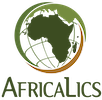Brief History
AfricaLics is the acronym for the African Network for Economics of Learning, Innovation, and Competence Building Systems. The network was established in 2012 as a Chapter of the Global Network on the Economics of Learning, Innovation, and Competence Building Systems (Globelics) and brings together scholars, researchers and policy analysts who study development, innovation, learning and competence building in an African context.
Objectives
The AfricaLics network is an academic research and capacity strengthening network whose vision is to facilitate the production and use of high-quality research at the intersection of innovation and development to promote inclusive and sustainable development in African countries.
The formation of AfricaLics was centred on the following two rationales:
- A need to understand innovation and learning in the context of Africa – both from theoretical and practical perspectives.
- Given the fact that Africa lacks adequate capacity for the above purpose, a need for capacity building arose.
Specifically, the AfricaLics network was founded due to a growing recognition of the need for more support for academic ‘research on innovation that had relevance to the contextual environments of African countries. There was acknowledgement that the huge focus on ‘research in innovation’ (i.e., research and development of specific inventions that can help solve practical problems) would be undermined if the enabling environment for such inventions to be developed and commercialised through innovation was not conducive. The concept of ‘research on innovation’ focuses on innovation processes, what fosters innovation and on what may help new solutions get accepted and adopted. It is particularly interested in understanding the impact of innovation on the social and economic development of African countries. It considers these issues at the level of firms, networks, and collaborations as well as at the national, continental, and global levels. As such the work of scholars in the AfricaLics network is multi-disciplinary being at the intersection of the established academic fields of innovation studies and development studies. However, the network also includes those from other more disciplinary fields such as engineering, economics and political science.
Vision
The overall vision of AfricaLics is to facilitate the production and use of high-quality and frontier research at the intersection of innovation studies and development studies that promotes inclusive and sustainable development in African countries. Within the AfricaLics community, innovation is broadly defined as spanning from “new to the world inventions” to the diffusion and use of technology new to the user or context in which it is introduced and includes competence building among users of innovation. Technology here can mean both a physical product; a new process e.g. for manufacturing a product and new ways of organising. It includes studies and improved understandings of how learning and competence building systems contribute to development processes. It recognizes that innovation and development are value-laden concepts, and provides a space for exploring the consequences (positive and negative) of the choices made in the innovation process.
Organisation/Participation
Anyone can become a member of the AfricaLics network through participation in our activities and has an interest in conducting or fostering high quality research on the intersection between innovation and development issues and promoting the use of that research within policy and practice environments. The network emphasizes interactive learning and promotes plurality in terms of research approach, methodology and theoretical perspectives. AfricaLics fosters a culture where serious research discussions take place in an open and friendly atmosphere. Its activities are based partly on time and resources allocated by members of the network on a voluntary basis and partly on contributions to specific activities from other sources such as universities, government institutions, development agencies and foundations. The network is open to researchers working in any region or language of Africa although the majority of discussions are held in English. The network is managed on a day-to-day basis by a Secretariat, currently hosted by the African Centre for Technology Studies, Kenya (ACTS) with support from a vibrant AfricaLics Scientific Board (ASB) drawn from Africa and global representation.
Key Activities
AfricaLics works to support African scholars, especially early career researchers, to produce research in the field of innovation studies that is at the global frontier and is relevant to resolving developmental challenges of African communities. The Network’s research capacity strengthening activities have contributed to expansion of a cadre of academics who can provide policy advice and support to African governments and businesses to enhance their decision making on where, when and how to innovate; specifically, how to strengthen innovation ecosystems.
Since 2012, AfricaLics has conducted activities in three core areas: a) research capacity building; (b) research support and strengthening activities and (c) research network building.
Specific Africalics activities include:
- Online networking platforms to encourage discussion and linkages between researchers working in the field of African innovation and development
- Africalics research conferences – a gathering of scholars located and working on innovation and development in Africa. The conference location circulates between the main regions of Africa from one year to the next.
- Africalics PhD Academies – a two-week research training for second and third year PhD students studying at African universities.
- AfricaLics visiting fellowships – opportunities for PhD and post-doctoral students from low and low-middle income African countries to receive additional training and capacity building support.
- Promotion of research activities/projects and dedicated innovation and development training at African universities
Funding to support AfricaLics activities has largely been from the Swedish International Development and Cooperation Agency (Sida), in-kind contributions from AfricaLics members and their universities and research institutes.
